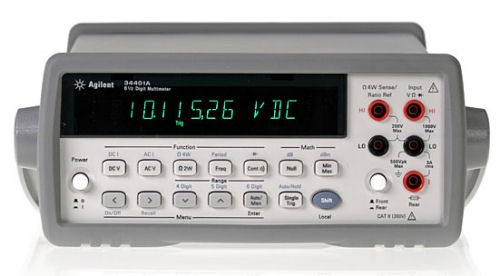How to Use a Multimeter
This Tutorial is Retired!
This tutorial covers concepts or technologies that are no longer current. It's still here for you to read and enjoy, but may not be as useful as our newest tutorials.
What Makes a Good Multimeter?
Everyone has his or her preference, but in general multimeters that have continuity are preferred. Every other feature is just icing on the cake.
There are fancy multimeters that are autoranging, meaning they automatically change their internal range to attempt to find the correct voltage, resistance, or current of the thing you're poking at. Auto-ranging can be very helpful if you know how to use it. Generally speaking, autoranging multimeters are higher quality and generally have more features. So if someone gives you a multimeter with auto-range, put it to use! Just know how to get it into manual mode. A circuit's voltage or current can fluctuate quite quickly. With some of the systems, the current or voltage is so sporadic that the auto-range can't keep up sensibly.
A back-lit LCD is fancy, but when was the last time you measured your circuit in the dark? We generally steer clear of scary forests and situations that require us to test stuff in the middle of the night, but some people may want or need a dark-friendly multimeter.
A good click on the range selector is actually a major plus in our book. A soft knob is usually indicative of a shoddy meter.
Decent probes are a plus. Over time the leads will tend to break down at the flex point. We've seen wires come completely out of probes - and it's always at the moment you need the probes to work! If you do break a probe, they are reasonably cheap to replace.
Auto-off is a great feature that is rarely seen on cheaper multimeters. This is a feature that can benefit beginners and advanced users alike, as it's easy to forget to turn the meter off at 2AM. The SparkFun digital multimeter doesn't have this feature, but luckily the meter is very low-power. We've left the multimeter for two days straight before the 9V battery began to get low. That said, don't forget to turn your meter off!
You're now ready to use your digital multimeter to start measuring the world around you. Feel free to start using it to answer many questions. I believe my LED is getting 20mA, is it really? How much voltage does a lemon have? Is a glass of water conductive? Can I use aluminum foil to replace these wires? A digital multimeter will answer these and many more questions about electronics.
